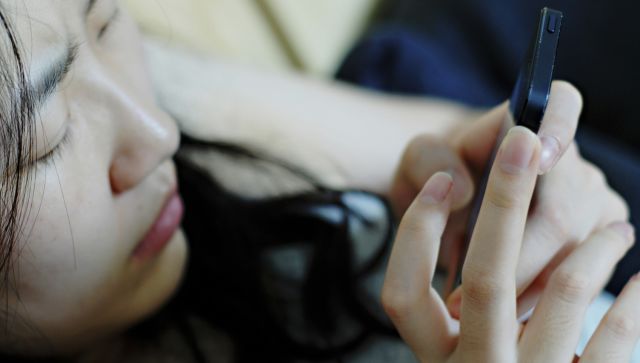The use of smartphones for communication is near ubiquitous in teenagers. It’s bad enough that they’re texting, tweeting, updating their Facebook pages and using social media apps you’ve probably never even heard of all through the day. So it probably comes as no surprise that many teens are staying connected all through the night as well. According to a Nielsen report, the average 13- to 17-year-old sends approximately 3,330 texts per month. Given the sheer number, some of those urgent messages are likely to be sent in the late or wee hours of the morning. In fact, sleep texting is a rising phenomenon among teens: They reach for their phones during the night, fire off messages and wake having no recollection of their actions. It’s little wonder that, according to a recent National Sleep Foundation poll, 56% of 15- to 17-year-olds sleep seven hours or less per night, two hours less than the widely accepted minimum recommendation.
Despite this nocturnal activity, there has been limited examination of the effects of late-night teen texting, their sleep patterns and daytime sleepiness. But researchers are beginning to wake up to the problem: A Belgian studyfound that mobile phone use was affecting the sleep cycles of 44% of the country’s 16-year-olds. Another study by the same researchers discovered that middle-of-the-night smartphone use contributed to cyberbullying.
Other studies have shown that texting after lights out was associated with stress, headache, anxiety and concentration difficulties. A 2012 Japanese study of 17,900 children in grades 7-12 concluded that mobile phone use in the wee hours of the morning was associated with poor mental health, suicidal feelings and even self-harm in both early and late adolescents.
Why is this? Well, it’s not just the obvious activity of texting that robs kids of shut-eye. Worrisome hints from some studies have shown that the electromagnetic fields produced by mobile phones have biological effects on sleep and the brain. They may also affect the sleep electroencephalogram (electrical activity in the brain), resulting in less REM sleep and thus a less restorative sleep pattern.
Up for debate is whether late-night texters are teen insomniacs who use their phones for company, but that would explain only outgoing texts. Most studieslook at two-way communication – sending and receiving texts. This research would indicate that the more likely scenario is teens keeping each other awake, rather than bad sleepers passing the time by texting.






